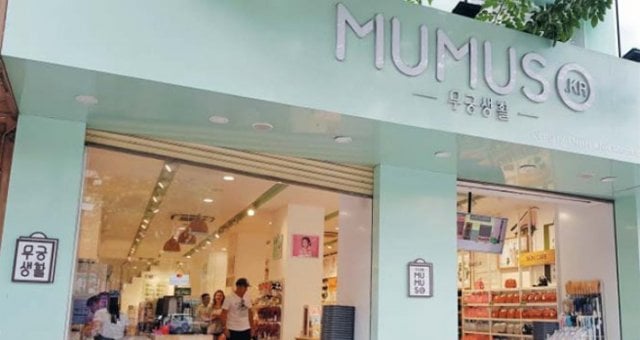Chinese Knockoffs Cash in on Korean Wave
Published on | Source
The entrance of a Mumuso store in Ho Chi Minh City, Vietnam
Enterprising Chinese manufacturers are doing brisk business on the back of the resurgent Korean Wave across Asia.
Advertisement
A staffer at the Ho Chi Minh City office of the Korea Trade-Investment Promotion Agency said, "We are seeing an explosive growth in stores selling bogus Korean products".
Sometimes it is just a question of printing some Hangeul characters on a bag or playing Korean pop music in stores. But they mainly entice Southeast Asian customers with knockoffs of popular Korean products.
Around 100 Chinese-owned "Korean" stores have sprung up in Vietnam over the last two years selling knockoffs, and they can also be seen in other Southeast Asian countries and even the Middle East.
Cod-Korean cafes and stores have also been spotted in Australia, Russia, North and South America and even in Africa.
Mumuso, which is headquartered in Shanghai, opened its first store in Qingdao in November of 2014 and expanded into a major franchise with 1,000 stores in China alone.
In 2016, it opened a store in the Philippines and within two years it had expanded to Indonesia, Myanmar, Singapore and Vietnam. Last year, Mumuso opened stores in Australia, Canada, New Zealand, Russia, Turkey and the United Arab Emirates.
Minigood, which advertises itself as a vendor of "high-quality Korean products", claims to have been established in Seoul in October of 2013 as a joint venture with a "renowned Korean design company". But in fact it is headquartered in China's Zhejiang Province.
After opening its first store in July 2014, Minigood now runs more than 600 stores in China. In 2016, it expanded to Southeast Asia starting with Vietnam and now owns stores in Cambodia, Indonesia and Singapore as well as Hong Kong, Macau and Taiwan. In February this year, Minigood opened three stores in Israel claiming to be a Korean company.
Ilahui, another Chinese company that claims to be Korea-based, opened its first store in Vietnam in 2016 and now owns 1,200 shops in China, Pakistan, Russia, Saudi Arabia, Southeast Asia and UAE.
It is unclear whether they violate any laws except those of strict good taste. Mumuso registered its trademark in Korea and specifies on tiny labels that the products were made in China and that its headquarters is in China. But Mumuso and Ilahui also claim on their websites that they have stores in Korea and are famous brands there.
One staffer at the KOTRA office in Ho Chi Minh City said, "We are discussing with Vietnamese authorities how to make sure that the image of Korean products are not harmed by these Chinese knockoffs".
